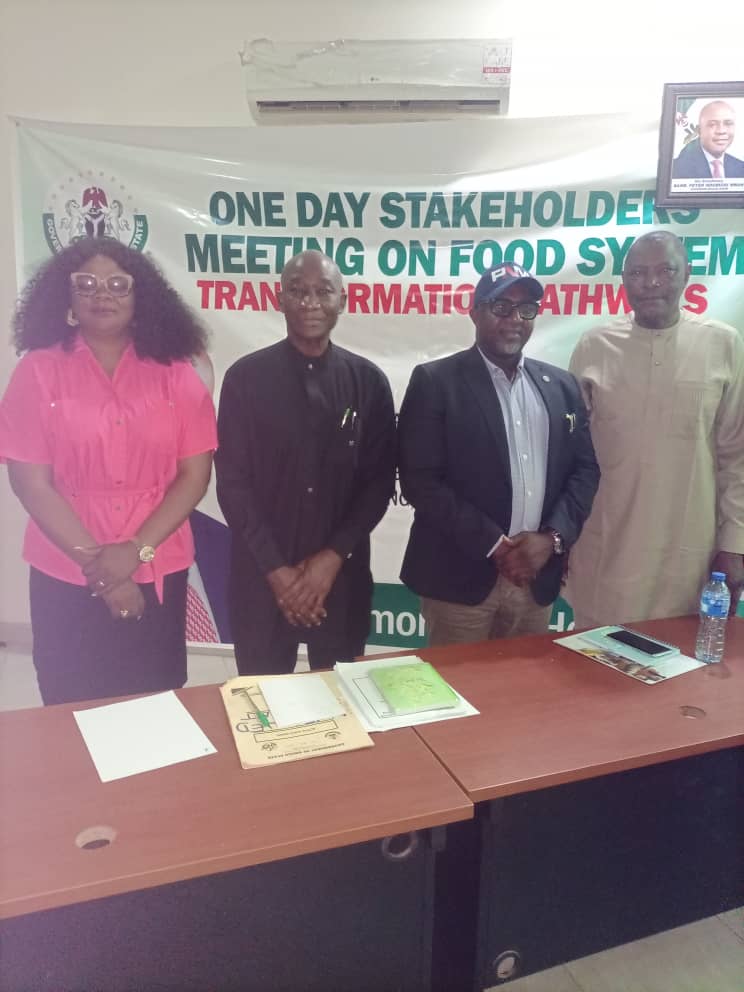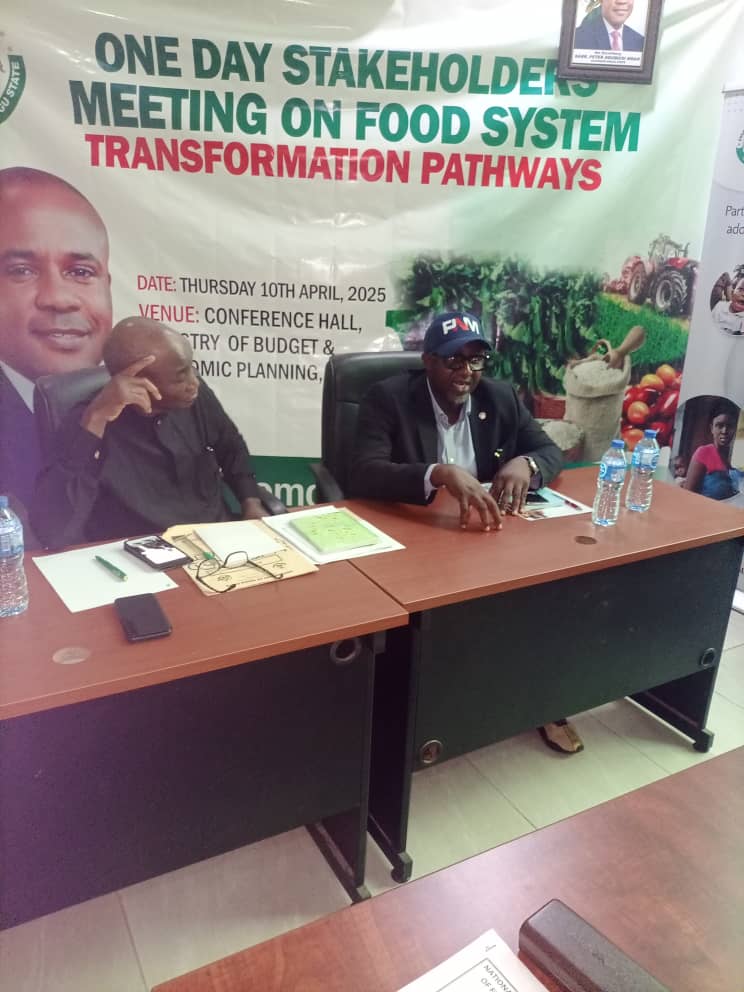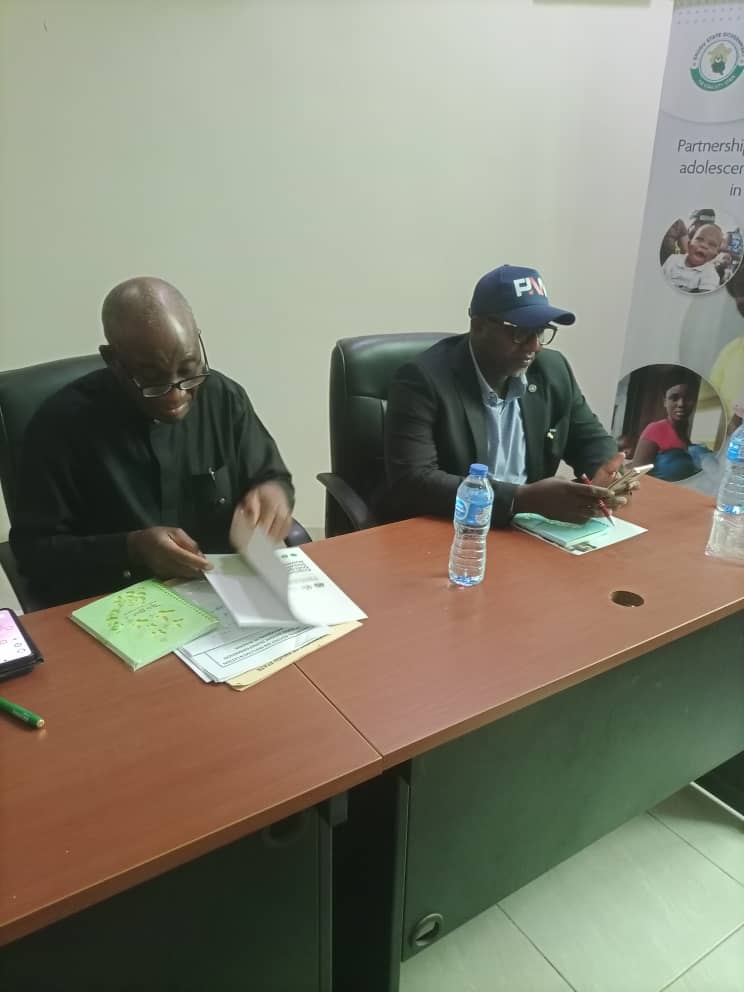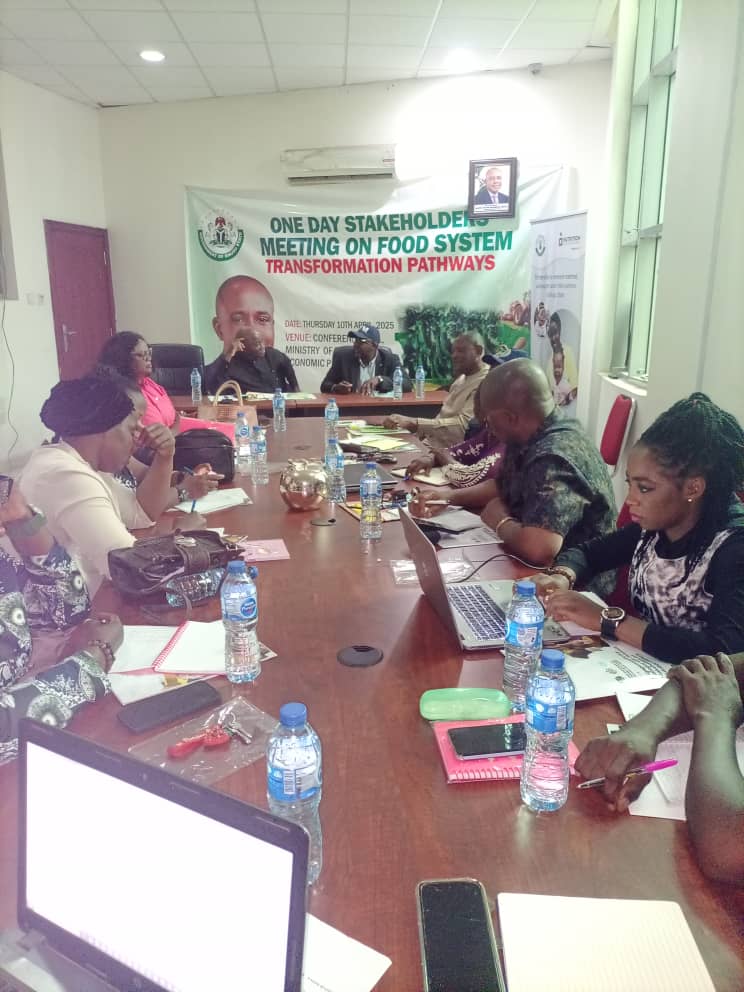
The Food System Transformation Pathways Committee convened its first quarter stakeholders’ engagement on April 10, 2025, bringing together key actors across various ministries, departments, and agencies, and in Enugu State. The objective of the meeting was to strengthen collaboration and chart a unified course toward food system transformation and sustainable agricultural development in the state.
The session opened with a prayer by Agric Desk Officer Calister Amoke, after which participants introduced themselves. In attendance were the Commissioner for Budget and Planning, Chief Barr. Chris-Roberts Ozongwu; Commissioner for Agriculture and Agro Industrialization, Mr. Patrick Nwabueze Ubru; Permanent Secretaries from the Ministries of Budget and Planning and Agriculture—Mrs. Clara Nwakaego Eze and Mr. Victor Ngwu respectively; and representatives from ministries including Health, Water Resources, Education, Science and Technology, Information, Human Capital Development, Ministry of Children Gender Affairs and Social Development and CS-SUNN.
The Commissioner Chief Barr Chris-Roberts Ozongwu stressed the importance of collective problem-solving, noting that no single sector holds all the answers. He emphasized the Federal Government’s directive for inclusive stakeholder collaboration and reaffirmed Enugu State’s commitment to being actively counted in the national Food System Transformation agenda.
The Commissioner Ministry of Agriculture and Agro Industrialization Mr. Patrick Nwabueze Ubru highlighted the end-to-end nature of food systems—from land clearing and cultivation to processing, preservation, and nutrition. He emphasized the government’s drive to raise farmers’ incomes, integrate more women into the sector, and promote food safety and quality.
Permanent Secretary Ministry of Budget and Planning Mrs. Clara Nwakaego Eze underscored the need for regular engagement and monthly reporting to Abuja. She encouraged stakeholders to focus on results, transparency in fund utilization, and alignment of health and agricultural goals in every intervention.
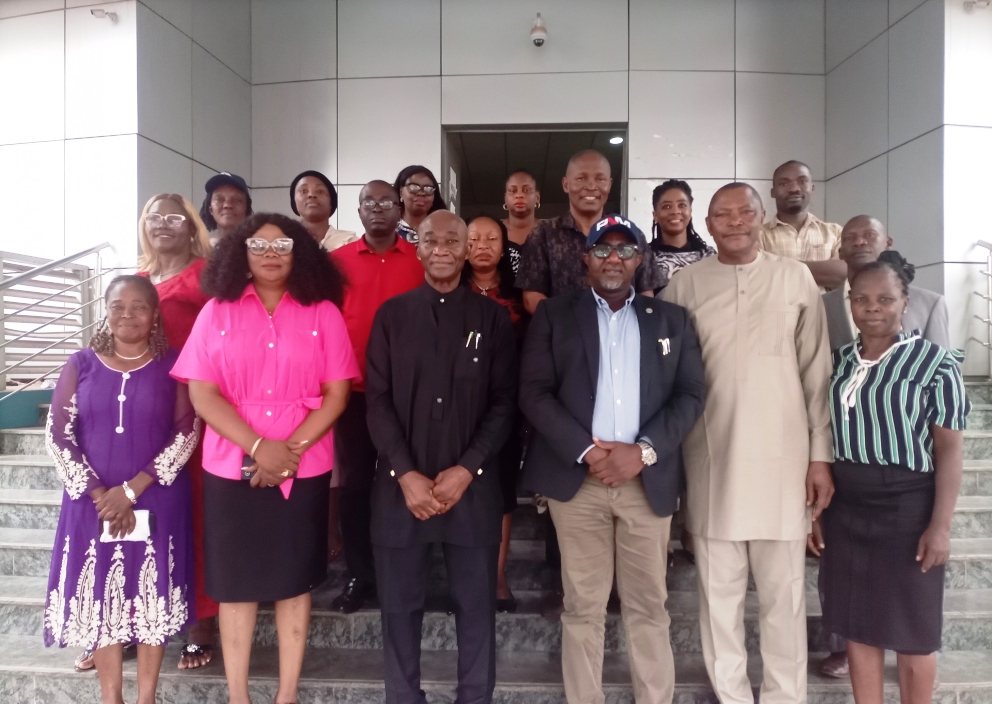 The Permanent Secretary Ministry of Agriculture Mr. Victor Ugwu shared significant strides made, including acquisition of tractors, establishment of fish farms, rollout of green farm technology, and the planting of cocoa across all LGAs. With 52,000 farmers registered, officials called for continued public education on food preparation and responsible consumption. Community cooperation was also requested for land allocation to boost productivity.
The Permanent Secretary Ministry of Agriculture Mr. Victor Ugwu shared significant strides made, including acquisition of tractors, establishment of fish farms, rollout of green farm technology, and the planting of cocoa across all LGAs. With 52,000 farmers registered, officials called for continued public education on food preparation and responsible consumption. Community cooperation was also requested for land allocation to boost productivity.
The Ministry of Health emphasized food hygiene to prevent poisoning, while the Ministry of Water Resources spoke on improvements in water quality and sanitation, including a new water coding system. A personal plea for fertilizer access led to a conversation on the importance of proper farmer registration.
Representatives from the Ministry of Education spoke proudly about the state’s 260 smart schools, each linked with a farm to encourage experiential learning and agricultural literacy among students. It was reaffirmed that no smart school should exist without a farm component.
The Ministry of Information encouraged ongoing media engagement to showcase progress and sensitize the public. Ministry of Children Gender Affairs and Social Development shared efforts to monitor food and water quality for women and children, and championed the establishment of school gardens and broader community awareness.
Human Capital Development and poverty Alleviation highlighted nutrition advocacy campaigns already underway in select LGAs and plans for a zonal tour. The Ministry of Science and Technology outlined innovations in food preservation, machinery fabrication, and safer cooking alternatives for rural communities.
CS-SUNN reaffirmed its partnership with UNICEF and MDAs to address systemic gaps, raising concerns about rural farmer registration and the need for targeted training. The Ministry of Agriculture responded with updates on allocated lands, sensitization programs, and a new kinetic farming strategy to turn idle land into productive farms—aimed at boosting employment and curbing insecurity.
The session wrapped with a closing prayer. Stakeholders departed energized and aligned around a shared vision of a more resilient, inclusive, and efficient food system for Enugu State.

